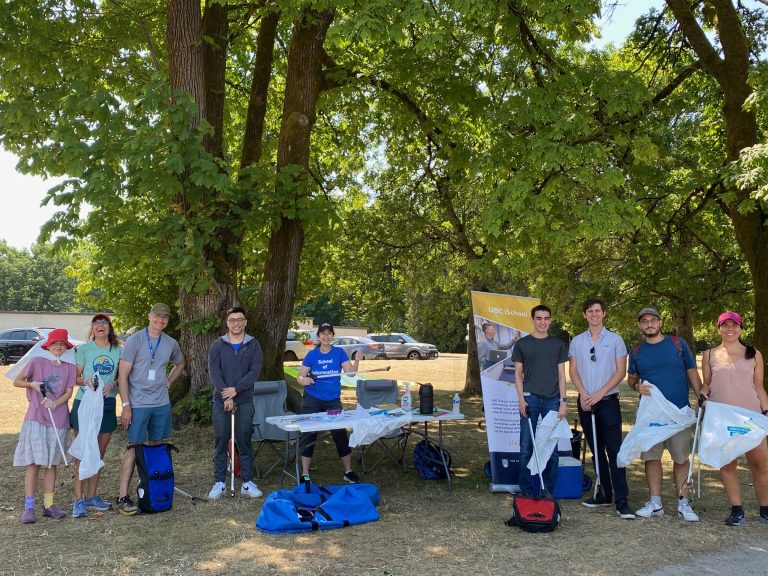

iSchool faculty, staff, and students hard at work cleaning up parks and beaches while having lots of fun!
From May to August in 2023, the School of Information ran beach and park clean-ups in the surrounding areas of Vancouver’s city beaches for the second year in a row. Organized by our department’s Sustainability Coordinator and Information Assistant, Debra Locke, these clean-ups happened once a month during the summer for the UBC community. The activity helps to enlighten the community on the impact of waste pollution in our city oceans, and acts as a reminder to reduce our negative impacts on our outdoor surroundings. This year, the volunteers collected a total of 106.77 lbs of waste.
The clean-ups were made possible by the Workplace Sustainability Fund, which offers grants of up to $1000 for Sustainability Coordinators to support sustainability initiatives within their departmental unit.
We spoke with Debra to get a behind-the-scenes look into the process of organizing and running the cleanups.
How did you organize the clean-up events?
Equipment and supplies were provided by the City of Vancouver, UBC Workplace Sustainability and the School of Information. People had the option of signing up as either a team or as an individual, with prizes awarded to the winners at the end of the summer. A meet up table was set up for volunteers to collect their supplies of gloves, garbage bags, and reaching aids before they set off on their assigned sections of the area. Upon return, the volunteers received snacks, refreshments and a chance to win a clean-up contest.
Why did you choose to do beach and park clean-ups to improve the environment?
It was the right choice to have something in which everyone can participate in, and serve as an opportunity to learn more about the effects of pollution to climate change and to the earth. The ocean produces at least 50% of the planet’s oxygen, is home to most of the earth’s biodiversity, and is the main source of protein for more than a billion people around the world. A healthy ocean with abundant wildlife helps stabilize the climate, so it’s critical that our planet’s lands, waters, and oceans are protected.
The events were also beneficial for our volunteers as it provided an opportunity for our school and the surrounding library community to gain a deeper understanding of the negative impacts that waste pollution has on our environment. We were able to discover ways to reduce waste pollution through the clean-ups, and bonded as a team while doing so. It was very beneficial for our mental and physical health.
What were some challenges you faced while organizing these events?
There were no major challenges, but volunteers had difficulty finding our meet-up spots at the beaches so it was hard to start the events at the scheduled start time. With outdoor clean-ups, weather conditions such as rain and strong winds also play a role in ease of participation.
What were your favorite parts, and/or the most rewarding parts of organizing these events?
My favorite aspects of organizing these events are meeting everyone together, and knowing that the clean-ups made a big difference on the environment. The volunteers all got expressions of gratitude from people walking past, and clean-up teams were able to connect more deeply with each other. We hope that these clean-ups were able to create a better environment for us all to share.


